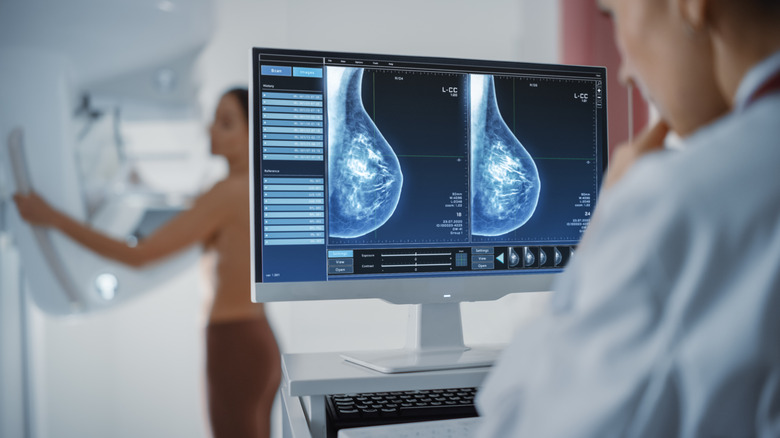Why So Few Cancers Are Caught By Routine Screenings
Aside from heart disease, the Centers for Disease Control and Prevention (CDC) reports that nothing kills more Americans than cancer. The United States sees more incidences of cancer than any other country in the world, and Medical News Today suggests that our success in early detection, thanks to cancer screening tests, might — at least in part — be responsible for these high numbers.
The CDC currently recommends routine screening for breast, cervical and colorectal cancers, as well as lung screening for at-risk individuals — as these cancers together account for a quarter of all cancer-related deaths here in the states. However, a new review conducted by the NORC research institute at the University of Chicago reports that only 14% of cancer diagnoses in the U.S. are reached through screening.
Caroline Pearson, senior vice president of NORC, admits that this is a surprisingly low number, but suggests a few possible reasons as to why this might be the case (per U.S. News).
Why cancer screening isn't working as well as it should
For one, there are currently no screening tests being recommended for more than half of the different types of cancer affecting people today (per NORC). On top of that, Pearson reveals that even when screenings are done as recommended, there is still the chance that something could be missed or that cancer develops and progresses in the time between screenings (per U.S. News). However, she notes that a massive obstacle in early detection is that many Americans are ignoring the recommendation for routine screenings. In fact, in 2017, 15% of cancer cases could have been detected by screening, but weren't, according to the report.
While getting people to honor the recommendation for cancer screenings can increase the amount of people who benefit from early cancer detection, Pearson says that making sure that testing is more widely available, as well as establishing less daunting procedures, are necessary steps if we hope to effectively screen more people.
At this junction, researchers are currently working on the development of a blood test that can identify the presence of multiple cancers in one fell swoop– a feat Dr. Ned Sharpless, former director of the U.S. National Cancer Institute, says, "could have a tremendous impact on cancer mortality rates," (per U.S. News).


